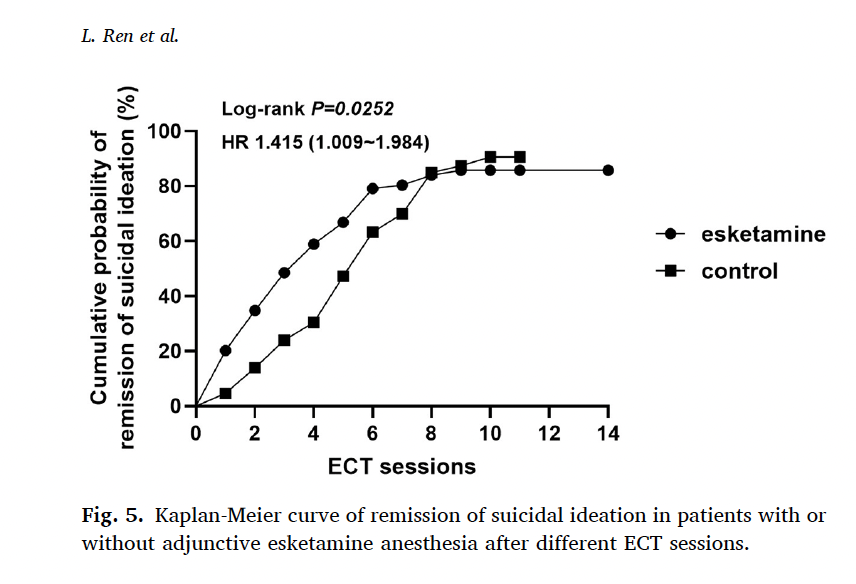Adjunctive Ketamine Anesthesia For ECT: Another Trial From China
Out on PubMed, from authors in China, is this paper:
Clinical efficacy of adjunctive esketamine anesthesia in electroconvulsive therapy for major depressive disorders: A pragmatic, randomized, controlled trial.
Psychiatry Res. 2024 Mar 6;335:115843. doi: 10.1016/j.psychres.2024.115843. Online ahead of print.PMID: 38461645
Electroconvulsive therapy (ECT) is an effective treatment for depression, and esketamine has been shown to have antidepressant effects. However, it is currently unclear whether adjunctive esketamine can enhance the clinical efficacy of ECT in real-world clinical practice. In this pragmatic clinical trial, patients with major depression were randomly assigned into two groups: patients received 0.25 mg/kg esketamine plus propofol (esketamine group) or the same volume of saline (control group) plus propofol. Results indicated that there was no difference in response and remission rates between the two groups. However, patients receiving esketamine had a higher remission rate of SI and lower psychotic scores. Patients receiving esketamine also required a lower electric dose, but the seizure duration and cognitive function were comparable between the two groups. Diastolic blood pressure increased after esketamine injection, but there was no increased risk of hypertension. Furthermore, incidence of delirium and confusion were comparable between the groups. Conclusively, adjunctive esketamine anesthesia does not provide any advantage in improving the response and remission rates of ECT. However, it can improve remission of SI and alleviate accompanying psychotic symptoms in depressive patients. With adjunctive usage, the adverse cardiovascular and neuropsychiatric events associated with esketamine appear to be tolerable.
Keywords: Depression; Electroconvulsive therapy; Esketamine; Treatment efficacy.
The paper is here.
And from the text:
This is yet another poor study from China with both flawed study design (isn't the idea to reduce the amount of one or both of the anesthetics when using ketofol?) and an aberrant study population (mean age of 19!).
Maybe the suicidal ideation finding is interesting...
I question whether Psychiatry Research even reviews these papers at all.
Thankfully the results are consistent with current knowledge and practice, and so can be ignored most easily.
If you think I am being way harsh, I would love to hear your opinions, thanks.








Dear Charlie, yes, you are absolutely right, there are so many older studies, especially from anesthesiology journals, which have actually all shown that if you take ketamine as an add-on to e.g. propofol anesthesia, the effectiveness and/or seizure quality does not increase and the side effects tend to increase. Of course, the aim of ketofol therapy is to reduce both, the dose of propofol and ketamine.
ReplyDeleteThe age inclusion criterion is strange indeed.